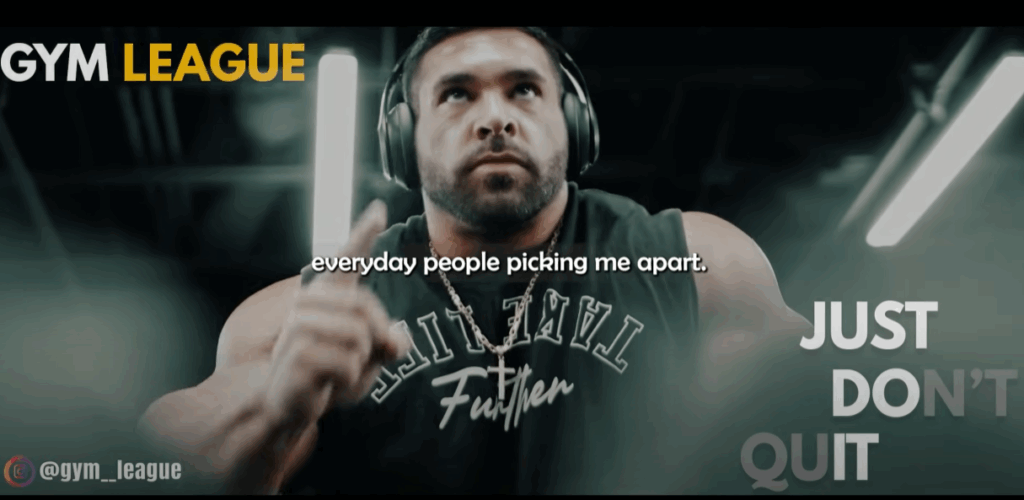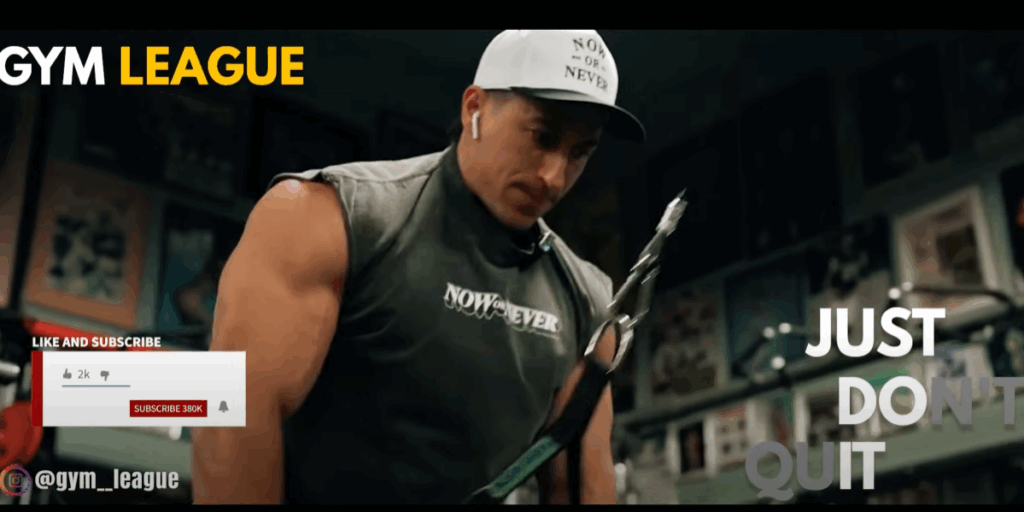When you dedicate yourself to achieving something far beyond the average, you will inevitably face judgment. People who live comfortable, ordinary lives will look at your discipline, your sacrifices, and your relentless pursuit of excellence, and they won’t get it. Some will call it obsessive. Others will say it’s unhealthy. Many will quietly wonder, “Why would anyone choose to live like that?”
But here’s the reality: the journey to greatness—whether in bodybuilding, sports, business, or personal mastery—requires more than casual effort. It demands all of you. It will test your patience, your willpower, and your ability to stay committed long after the excitement has faded.

Why Ordinary Effort Produces Ordinary Results
For most people, “good enough” is the goal. They want to be comfortable, to enjoy the rewards of life without enduring prolonged discomfort. And there’s nothing wrong with that—if that’s truly what they want.
But if you’ve set your sights on something extraordinary—like building an elite physique, mastering a sport, or becoming the best in your field—you can’t play by the rules of average effort. You can’t skip the grind and expect the glory. You can’t train only when you feel like it, or eat clean only when it’s convenient, and expect to stand at the top.
The Mental Barrier Most People Won’t Cross
I’ve spent decades pushing myself beyond my own limits, and I’ve learned that the biggest barrier isn’t physical—it’s mental. It’s the ability to keep going when there’s no immediate reward. It’s choosing to train hard even when no one is watching. It’s staying disciplined when the world is telling you to take it easy.
That mindset isn’t developed overnight. It comes from years of forcing yourself into uncomfortable situations and refusing to quit. Over time, your mind becomes “calloused”—tough enough to handle stress, criticism, and setbacks without breaking.
The Disconnect Between the Driven and the Comfortable
One of the most frustrating realities is that people who have never lived this level of discipline often try to judge it. They see the strict meal plans, the early mornings, the intense training, and the refusal to compromise, and they think it’s madness.
But they’re looking at it from the perspective of someone who values comfort over achievement. They can’t see the deep satisfaction that comes from knowing you’ve given your absolute best. They can’t feel the pride that comes from overcoming your own weaknesses day after day.
And because they can’t understand it, they dismiss it.

The Tools That Separate Winners from Quitters
If you want to break free from average results, you need to develop tools that keep you in the game when things get hard. Over the years, I’ve used—and taught—mental strategies to help people build resilience.
- Mental Armor – This is your ability to take criticism, failure, and self-doubt, and keep moving forward. You build it by facing challenges head-on instead of avoiding them.
- The “Cookie Jar” Method – Keep a mental library of your past victories, no matter how small. When things get tough, pull from those memories to remind yourself of what you’ve already overcome.
- Radical Accountability – Own every part of your journey. Don’t blame circumstances, genetics, or other people. If you want change, take full responsibility for making it happen.
These aren’t just “motivational ideas.” They’re battle-tested approaches that keep you steady when motivation disappears.
The World Won’t Go Easy on You
Look around. Life doesn’t get softer just because you wish it would. Challenges are coming, whether you prepare for them or not. The question is, will you meet them as someone who has trained their body and mind for the fight—or as someone hoping things won’t get too hard?
The truth is, you don’t rise to the level of your goals; you fall to the strength of your habits. If your daily actions are built on discipline and preparation, you’ll be ready for whatever comes. If they’re built on comfort and convenience, you’ll crumble when the pressure hits.
Breaking the Cycle of Average Thinking
Average thinking keeps people stuck in cycles: start strong, lose motivation, quit, repeat. To break free, you have to build the capacity to keep going even when the process feels endless.
That might mean:
- Training at 5 a.m. before work instead of skipping because you’re tired.
- Preparing your meals in advance so you don’t “accidentally” eat junk.
- Logging your progress, even when it’s slow, so you can track improvement over months, not days.
The people who win—on stage, in sports, or in life—aren’t necessarily the most talented. They’re the ones who keep showing up, long after others have walked

away.
Refusing to Live on Someone Else’s Standards
If you let other people define what’s “normal,” you’ll end up living a life designed by their limitations, not your potential. What’s extreme to them may be essential to you.
For a competitive bodybuilder, weighing meals isn’t obsessive—it’s a necessity. For an elite athlete, waking up early for training isn’t punishment—it’s preparation. For a driven entrepreneur, working late isn’t unhealthy—it’s investing in a dream.
The standards you live by should reflect the life you want, not the life other people are comfortable with.
Becoming Your Own Rescue
One of the most empowering truths you can embrace is that no one is coming to save you. No coach, mentor, or training partner can lift the weight for you. No friend or family member can maintain your diet for you.
Support helps, but the real work is yours alone. And once you accept that, you stop waiting for the “perfect time” and start creating results right where you are.
Final Word
Greatness is never an accident. It’s built through deliberate choices, repeated daily, even when they’re uncomfortable. It’s earned through discipline, resilience, and the willingness to be misunderstood by people who can’t see your vision.
If you want what most people will never have, you have to be willing to do what most people will never do. That means pushing past ordinary effort, ignoring ordinary opinions, and committing to extraordinary action.
In the end, it doesn’t matter who doubts you. It matters who you become when you refuse to stop.



